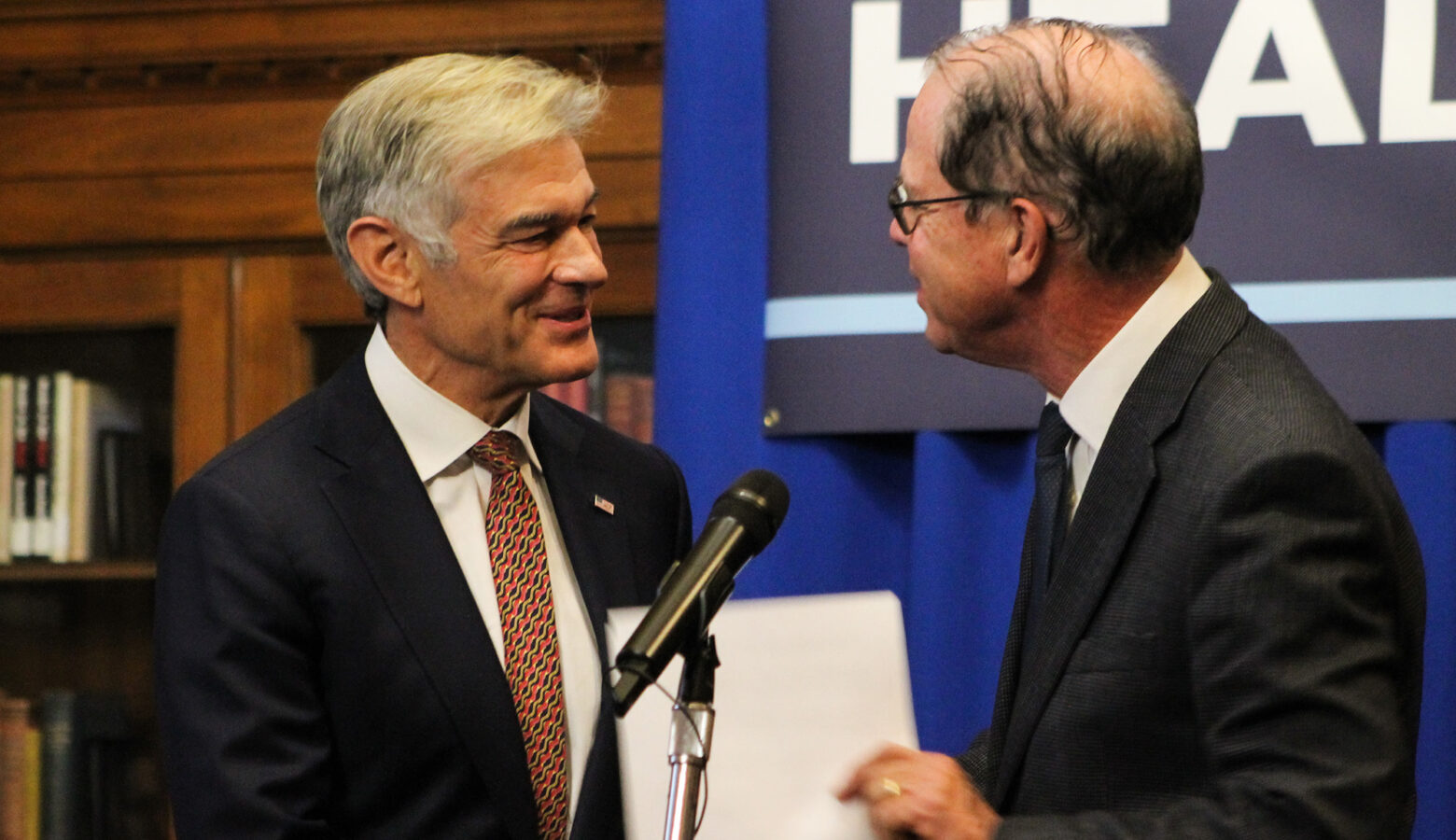Braun launches ‘Make Indiana Healthy Again’ initiative, makes significant changes to SNAP

Gov. Mike Braun unveiled a new health initiative which makes several significant changes to Indiana’s Supplemental Nutrition Assistance Program, or SNAP. The top U.S. health official said the changes go further than any other state’s so far.
The “Make Indiana Healthy Again” initiative includes nine executive orders, with almost half focused on SNAP. The orders make significant changes to the program, including removing candy, desserts and soft drinks from SNAP benefits.
As part of the announcement, Braun was joined by U.S. Department of Health and Human Services Secretary Robert F. Kennedy Jr. and Centers for Medicare and Medicaid Services Administrator Mehmet Oz.
Kennedy said Indiana is the first state to exclude more than soft drinks. He also pointed out the proposed changes have already been submitted to the U.S. Department of Agriculture — which also sets Indiana apart among other states.
“I also want to take this moment to encourage governors all over the country to do that, to follow the lead of Indiana,” Kennedy said.
In addition to limits on what SNAP benefits can be used for, the policies would overhaul the program through sweeping changes.
Braun’s administration will impose work requirements on all non-exempt SNAP recipients and overhaul the employment and training program, with the goal of promoting long-term growth. Indiana will also limit eligibility to households receiving Temporary Assistance for Needy Family, or TANF, support or participating in TANF-funded programs.
That order also requires the secretary of the Family and Social Services Administration to develop recommendations to “streamline” the asset verification — which accounts for real estate, bank accounts and vehicles — eligibility process for SNAP. One of those recommendations looks at “digital verification solutions.”
There are efforts to implement similar practices for Indiana’s Medicaid program. Some lawmakers have raised concerns about electronic eligibility verification, given Indiana’s history with those systems.
In 2006, Indiana implemented an automated eligibility system for the Medicaid expansion program run through IBM, a third party. The goal was to streamline the applications and identify fraud, but lawmakers and advocates said it cost people their coverage.
Indiana canceled its $1.3 billion contract with IBM just three years into its implementation. The legal battle that ensued concluded in 2019, with IBM ordered to pay the state tens of millions of dollars.
FSSA Secretary Mitch Roob led the agency when Indiana implemented the digital eligibility verification program back in 2006.
The other executive orders cover a wide range of topics, including access to local food, diet-related chronic disease and transparency related to food dyes and additives. One focuses on student health by establishing a fitness test and fitness month for Indiana schools.
Braun said the policies are meant to encourage healthier choices.
“This isn’t a usual top-down, one-size-fits-all public health agenda,” Braun said. “We’re focused on root causes, transparent information and real results.”
For some Hoosiers, healthy choices can be inaccessible due to food deserts, high costs and lack of time to invest in a healthier lifestyle. But the executive orders don’t address the issue of affordability.
Braun said he invites other people to solve those issues without the government being in the way.
“We got to find out entrepreneurial ways of addressing it through the folks that produce it, and not necessarily just asking for more to get it done,” Braun said.
The initiative included an executive order on Medicaid. It largely duplicates the Senate GOP’s priority legislation on the program, Senate Bill 2. Braun said he expects that measure to reach his desk, likely this week.
Join the conversation and sign up for our weekly text group: the Indiana Two-Way. Your comments and questions help us find the answers you need on statewide issues, including our project Civically, Indiana and our 2025 bill tracker.
Several Democratic state lawmakers criticized Braun’s initiative.
Rep. Maureen Bauer (D-South Bend) said in a statement the announcement was “hollow” given Braun’s budget request decreasing the state’s investment in the Health First Indiana Initiative — Indiana’s historic public health funding.
“It’s not leadership to bring your D.C. friends in for a flashy announcement but then fail to put your money where your mouth is when it comes to actually funding local public health programs,” Bauer said.
In the other chamber, Senate Democratic Leader Shelli Yoder (D-Bloomington) said in a statement, the executive orders are a headline strategy.
“Today, Indiana’s governor stood beside a health secretary with a professional record of spreading vaccine misinformation — during an active measles outbreak even in Indiana — and claimed the state was taking bold steps to improve public health,” Yoder said.
Yoder said the restrictions on Medicaid and SNAP based on fraud and abuse shouldn’t be positioned as public health issues because they are “political talking points used to justify cruelty.”
Federal health officials said Braun’s executive orders align with the Trump administration’s “Make America Healthy Again” campaign and encouraged other states to follow Indiana’s lead.
Abigail is our health reporter. Contact them at aruhman@wboi.org.

